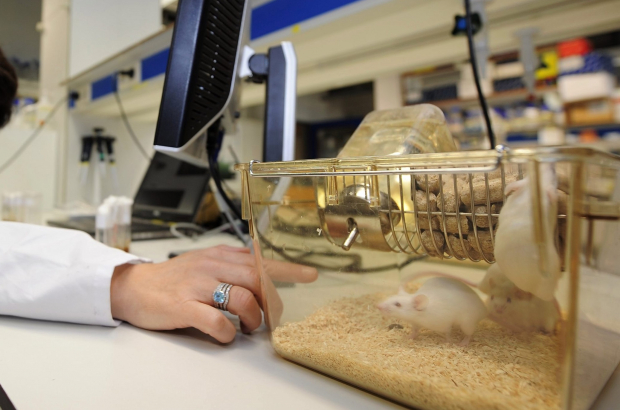- Daily & Weekly newsletters
- Buy & download The Bulletin
- Comment on our articles
Grant for alternatives to animal testing at VUB
The Brussels regional government has approved a grant of €60,000 for the Vrije Universiteit Brussel (VUB) to develop an alternative method to animal testing. The funding will go to VUB’s Innovation Centre-3Rs (IC-3Rs), which is working on alternatives based on stem cells derived from human skin tissue.
The centre’s objective is to develop a new human-based model in the search for a treatment against fibrosis, or scarring, of the liver. Human-derived stem cells are converted into liver cells using in vitro technology, which researchers can use to develop a cell model that can be applied to determine the risks of new drugs.
The grant will in part pay for a doctoral researcher to continue the work by Alessandra Natale and Joost Boeckmans, who both have been working on the in vitro method for four years to obtain their doctoral thesis. This method doesn’t require laboratory testing on animals, and because it uses human cells, the process has a higher chance of leading to a suitable model to test effective drugs.
“This model is working with human-based cells, which prevents the months-long use of an invasive and painful animal model,” said professor Vera Rogiers, the head of IC-3Rs. The in vitro method also provides more relevant data in the search for drugs to treat fibrosis, she explained.
“Investigations are usually done on animals such as rats and mice, but there is a big difference between humans and other species in how molecules are metabolised – how they are broken down and excreted.”
Liver fibrosis is the most common liver condition, affecting around one-quarter of the world’s population, and there is currently no treatment for it. A build-up of fat in the liver can usually be treated by lifestyle changes, but, if left untreated, it can develop into non-alcoholic steatohepatitis and eventually further to fibrosis, cirrhosis or cancer.
Animal experiments are conducted for various purposes, including to test the safety of medicines and foods, to learn more about biological processes, to investigate behaviour in animals and to study animal diseases or treatments. Only accredited labs may carry out animal testing. Almost 540,000 animals – including rodents, rabbits, dogs and monkeys – are used in lab tests in Belgium every year.
“Science has evolved and created alternatives that don’t involve laboratory animals and that give results that are more relevant to humans,” said Bernard Clerfayt (DéFI), the Brussels minister responsible for animal welfare. “It is therefore crucial to allow the development of this type of method and to maintain the objective of eliminating all animal experimentation.”
Photo ©Eric Lalmand/BELGA



















